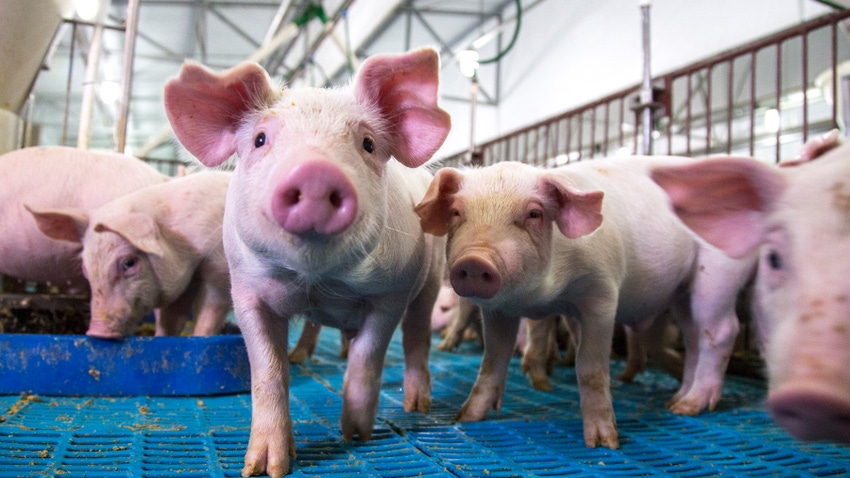
How can the nation’s hog producers keep diseases such as brucellosis, swine influenza and African swine fever out of their barns? North Dakota’s state veterinarian says programs like the U.S. Swine Health Improvement Plan can help.
“The USDA reached out to industry, and they started working together on an approach of how we’re going to deal with African swine fever,” Dr. Ethan Andress says. “They developed the U.S. SHIP, which is based around biosecurity, disease surveillance and testing.”
Modeled after the National Poultry Improvement Plan, U.S. SHIP works to establish a platform for safeguarding, improving and representing the health status of swine across participating farm sites, supply chains, states and regions. The three aims of U.S. SHIP are:
1. Safer trade. Enhance all aspects of trade impacting disease preparedness among participating producers, slaughter facilities and a state through proactively establishing an industry-informed and working system of operations and certification built upon well-defined program requirements for biosecurity, traceability and disease surveillance.
2. Disease impact. Reduce the impact of recurring endemic diseases of high consequences through the sustainable advancement of sanitary standards and practices that mitigate disease spread into and between farms.
3. Customized program. Provide U.S. pork industry participants a firsthand experience in developing and participating in a program customized to meet the needs of the U.S. pork industry.
“Approximately 30% of our pork is shipped overseas,” Andress says. “If we were to have a disease outbreak in the United States, we would immediately have to shut our exports down, and that will create a bottleneck in our system. With products that don’t have a market anymore, our pork industry would be destroyed by the time we rebuild if that happens, and cost us billions of dollars regardless.”
U.S. SHIP is one way that producers can have peace of mind in keeping trade and exports open if a disease does reach the states, but North Dakota offers another big benefit to disease prevention: space.
Safety in space
“This is a time where our low pig population is very useful,” says Amber Wood, executive director of the North Dakota Livestock Alliance. “We’re able to start and place herds in a respectful distance away from each other to ensure that if disease gets in, we’re able to isolate and prevent the illness from passing to another pig barn.”
States with a high density of hogs including Minnesota, Iowa and South Dakota might see challenges with isolating livestock during a disease. “Our herds might be able to stay clear enough where we would be able to continue meeting the needs of U.S. and international consumers,” Wood says.
U.S. SHIP is working to establish a national playbook of technical standards and associated certification, recognized across participating states, that center on disease prevention in support of animal health, commerce and trade.
“African swine fever has had a devastating impact on the pig industry worldwide,” he says. “It weakens the immune system and allows a lot of other infections to come, and can cause up to 100% mortality.” The disease has no effect on humans and does not increase risk in food supplies.
While vaccines and products are being tested, with varying levels of success, participation in the program is crucial, Andress says. “Right now, we have a large part of the industry participating, but we need to reach show pigs, those cull pigs. We need to get all entities involved so we can all get on the same page,” he says.
Find out more about the U.S. SHIP program at usswinehealthimprovementplan.com. If interested in adding swine to your farm or ranch, visit ndlivestock.org.
Read more about:
Animal WelfareAbout the Author(s)
You May Also Like






